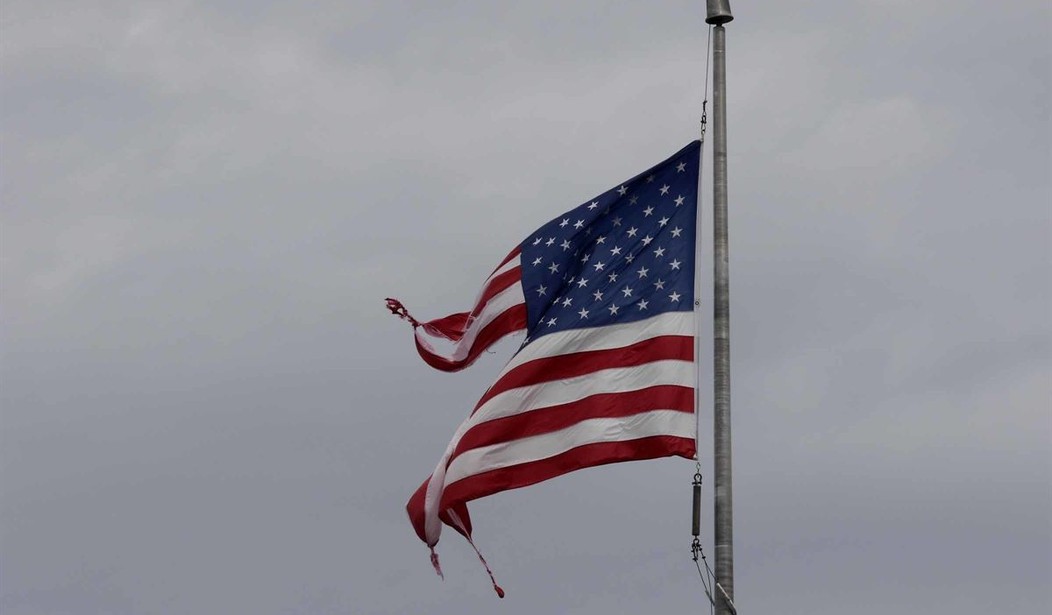Politically-attuned Americans likely don't need an academic study to confirm this, but it's the truth: Many committed Republicans and Democrats literally don't understand each other, and our tribal polarization is growing worse among those who are most invested in politics. The new research commissioned by an organization called More in Common finds that higher levels of education and news engagement are not effective means of combatting this problem -- in fact being "smarter" has a negative impact on the phenomenon, via The Atlantic: "The 'Perception Gap' study suggests that neither the media nor the universities are likely to remedy Americans’ inability to hear one another. It found that the best educated and most politically interested Americans are more likely to vilify their political adversaries than their less educated, less tuned-in peers." More details:
Researchers asked Democrats to guess how Republicans would answer a range of political questions—and vice versa...According to the Democratic caricature, most Republicans stridently oppose immigration, hold deeply prejudiced views about religious minorities, and are blind to the existence of racism or sexism. Asked to guess what share of Republicans believe that immigration can strengthen America so long as it is “properly controlled,” for example, Democrats estimated about half; actually, nearly nine in 10 agreed with this sentiment.
Democrats also estimated that four in 10 Republicans believe that “many Muslims are good Americans,” and that only half recognize that “racism still exists in America.” In reality, those figures were two-thirds and four in five. Unsurprisingly, Republicans are also prone to caricature Democrats. For example, Republicans approximated that only about half of Democrats are “proud to be American” despite the country’s problems. Actually, more than four in five Democrats said they are. Similarly, Republicans guessed that fewer than four in 10 Democrats reject the idea of open borders. Actually, seven in 10 said they do.

As noted above, better education makes this gap grow wider, while people with fewer academic credentials, and who spend less time following political news cycles, are better at predicting what the 'other side' believes: "Americans who rarely or never follow the news are surprisingly good at estimating the views of people with whom they disagree. On average, they misjudge the preferences of political adversaries by less than 10 percent. Those who follow the news most of the time, by contrast, are terrible at understanding their adversaries. On average, they believe that the share of their political adversaries who endorse extreme views is about 30 percent higher than it is in reality." As you can see here, the group that is least likely to accurately characterize the views of their political opponents are cloistered, highly-educated liberals:
Recommended
Why does education increase the perception gap for Democrats but not Republicans?
— Yascha Mounk (@Yascha_Mounk) June 23, 2019
Likely answer:
Highly-educated Republicans tend to be exposed to lots of liberals.
Highly-educated Democrats tend to have an ideologically homogeneous friend group. pic.twitter.com/QPQzyD6pNE
The study finds that misperceptions among educated liberals "actually get worse with every additional degree they earn.” The writer's conclusion: "It is deeply worrying that Americans now have so little understanding of their political adversaries. It is downright disturbing that the very institutions that ought to help us become better informed may actually be deepening our mutual incomprehension." Those institutions, by the way, are the academy and the media -- both of which have a notorious ideological bent, frequently chasing off people who think differently to their own silos. At National Review, David French finds it alarming that so many of the people who are most dialed into our political process are the very actors who are actively making it more dysfunctional and poisonous:
[This research] shows that political ignorance about the opposing party is driven by America’s most engaged and (at least on the left) most highly educated citizens. In other words, the more you pay attention to political media, the less likely you are to understand the true beliefs of your political opponents...Crucially, “politically disengaged” Americans were “fully three times more accurate in their estimates of political opponents” than those on the right and left edges of American politics...It’s a truism that the people who care the most about any given industry or activity tend not only to drive perceptions about that industry or activity but also to set its ultimate course. Comic-book superfans have outsize influence on superhero movies. Sports fanatics have an outsize influence on the culture and rules of their favorite leagues. Political obsessives have an outsize influence on our nation’s political culture. It turns out that our influence is malignant in part because we’re ignorant.
Highly engaged, but ignorant about the opposition's true beliefs. Are there any factors that can cut against this trend? Here's one: "Media only helps to narrow the perception gap when its partisan lean goes against the inclination of the consumer: So if Republicans watch CNN, or Democrats watch Fox, their perception gap slightly narrows. Just about everything else makes things worse." In short, consuming news sources that challenge one's worldview has a corrective and empathy-causing effect. More politically-attuned Americans should try it, just as more people from this cohort should actively cultivate and maintain relationships across partisan divides -- and actually listen.

























Join the conversation as a VIP Member